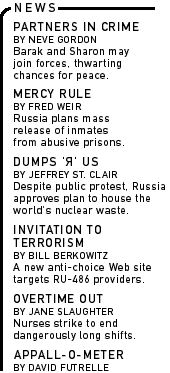

|

|

|

|
| |
 |
|
|
On the surface, Americans appear to be living in idyllic times: Our economy is robust, and the United States is the world's only superpower. Yet the growth of the economy has concentrated power in the hands of a few individuals and corporations (the top 1 percent now owns nearly half the wealth). Economic globalization has resulted in transnational organizations that operate above the law with unchecked power. Washington is awash with lobbyists representing the rich and powerful, while cynicism about the democratic process grows. We are at a crossroads where we must decide between plutocracy––government controlled by the wealthy––and real democracy. To defend real democracy and act for the common good, we must begin to make systematic changes in our economic system. The social justice movement has made progress on civil rights, but there has been little progress in the arena of economic justice. African-Americans and Latinos are still paid less than their white counterparts in a broad range of job categories. There has been slow progress in making the minimum wage a living wage. Yet the social safety net has frayed, disproportionately impacting single mothers and their children. When multinational corporations move jobs out of the United States to foreign plants, the workers most affected are those with fewer skills and those from low-income families. While the impact of the growing chasm between the rich and the poor is well documented in these arenas, the impact on the environmental and peace movements is often more subtle. The growing economic divide is illustrated within the environmental movement in the living conditions of the poor: Toxic dumps are found in their neighborhoods; they are more likely to live adjacent to plants dealing with hazardous substances; and their children disproportionately suffer from chronic health problems. Polluting corporations have lobbyists who represent their interests with government officials, but the poor lack this representation, thus they have a diminished ability to ensure clean air and water for their families. Meanwhile, the United States now spends more on research and testing of nuclear weapons annually than it did on average during the Cold War--$5 billion now versus $3.7 billion then in constant dollars. These funds could be used to improve the living conditions of our society's working poor instead of financing nuclear weapons tests on the land of indigenous people, such as the Western Shoshone in Nevada. Seeing this widening economic gap, it becomes apparent that powerful forces have arrayed in opposition to a morality of fairness. Some of this is attributable to the rich and powerful being unwilling to give up their privilege. But much is due to the "free market" mentality incorporated in transnational corporate capitalism that values profits over people. This mentality opposes efforts to raise wages and expand the social safety net, for to do so is seen as a threat to corporate profits. We need to attack the proposition that market values supplant human values. To get at this directly, we must go to the source--"corporation think," the free market mentality commonly advanced by the captains of industry and their publicists. It follows that, in addition to a belief in fundamental equality and an understanding that the widening gulf between the rich and poor threatens our social fabric, the third unifying principle of the left is opposition to corporate capitalism. Unfettered corporate capitalism threatens democracy. Corporate power must be checked. We need to expose the prevailing economic myths of the "self-regulating marketplace," "corporation as person" and the "level playing field" as hollow and undemocratic. We need to change the rules that govern our society so that they benefit all the people. Thanks for all your feedback. I enjoy hearing from you at bburnett@inthesetimes.com.
|

